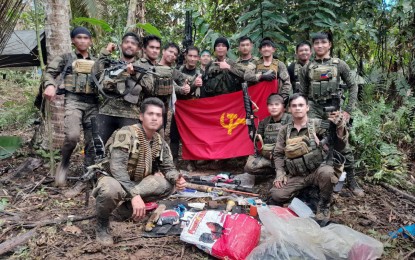The Philippine government and the National Democratic Front of the Philippines (NDFP) have restarted the peace process, which was halted six years ago by then President Rodrigo Duterte.
The aim is to reach an agreement that will put an end to the communist-led insurgency that has been active since the dictatorship of Ferdinand Marcos, whose namesake son is the current president of the Philippines.
Luis Jalandoni heads the NDFP, which acts as a political and diplomatic umbrella organisation for the rebels.

A former priest, Jalandoni founded Christians for National Liberation, a movement that has been a reference point for the Maoist-leaning Communist Party of the Philippines (CPP), whose leader, Jose Maria Sison, died in exile in the Netherlands last December.
The conflict with the communist guerrillas is the country’s longest, having begun in 1969. More than 40,000 people, mostly civilians, have died over the years.
Jalandoni, who has long been the government’s interlocutor in peace talks, welcomed the invitation by the government negotiator and Special Assistant to the President Antonio Ernesto Lagdameo.
In a joint statement signed on 23 November in the Norwegian capital of Oslo, the two sides “agree to a principled and peaceful resolution of the armed conflict” and “recognize the need to unite as a nation” to better address “foreign security threats” and deal with the country’s serious socioeconomic and environmental situation.
The statement, which lays the foundations for future talks, outlines the priorities, which are aimed at “achieving the relevant socioeconomic and political reforms towards a just and lasting peace.”
As for the NDFP, deemed a terrorist organisation under Philippine law, “The parties agreed that a principled and peaceful resolution of the armed conflict, resolving the roots of the armed conflict and ending the armed struggle shall pave the way for the transformation of the CPP-NPA-NDF.”[*]
The announcement of fresh talks was preceded last week by an amnesty for detained rebels, a step promised by President Marcos and appreciated by many, including the security forces, who see the possibility of putting an end to a conflict, but unwelcome by some political parties who fear repressive manoeuvres and a lack of involvement of civil society groups justified by the “need” to reach an agreement.
[*] Communist Party of the Philippines-New People’s Army- National Democratic Front.
